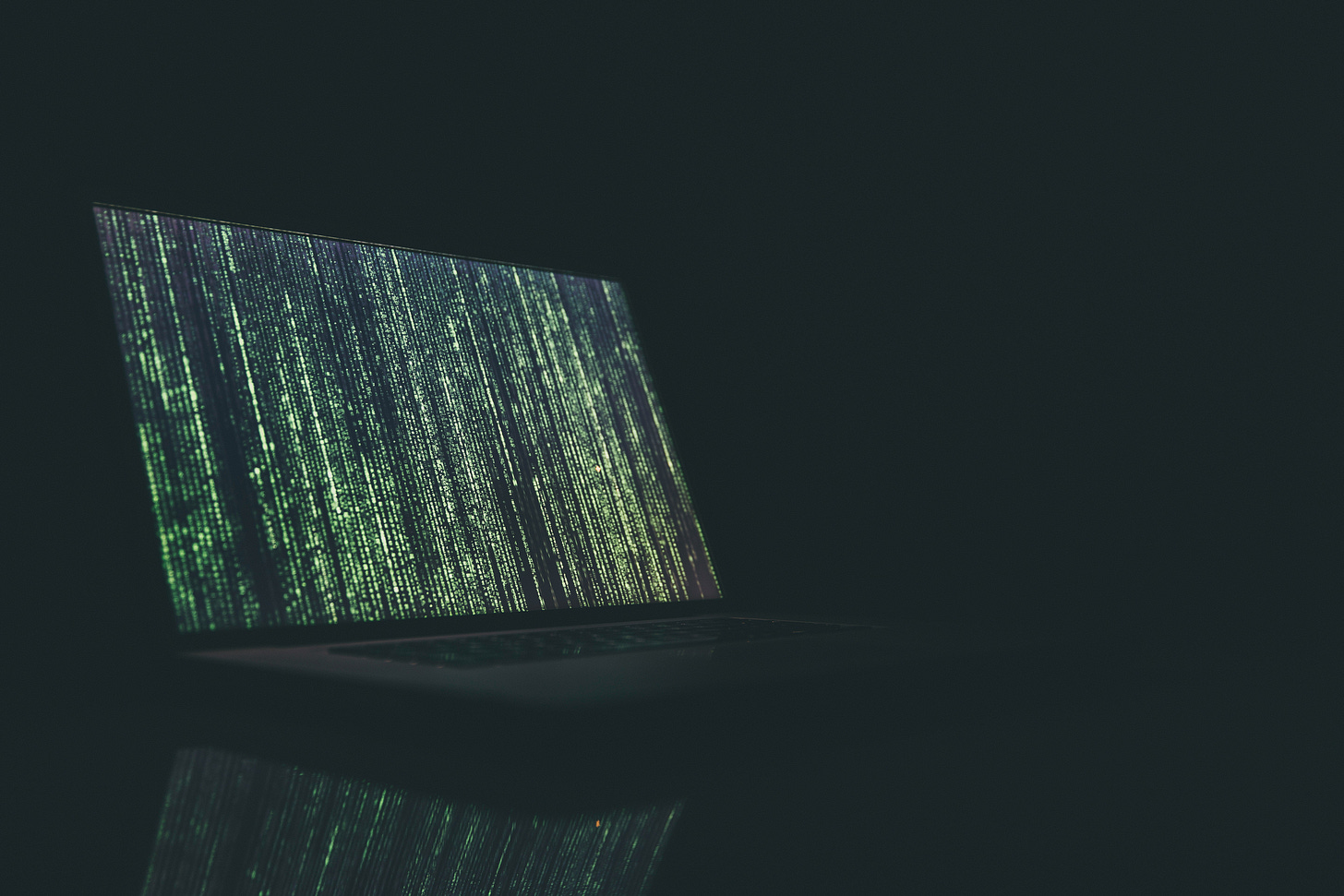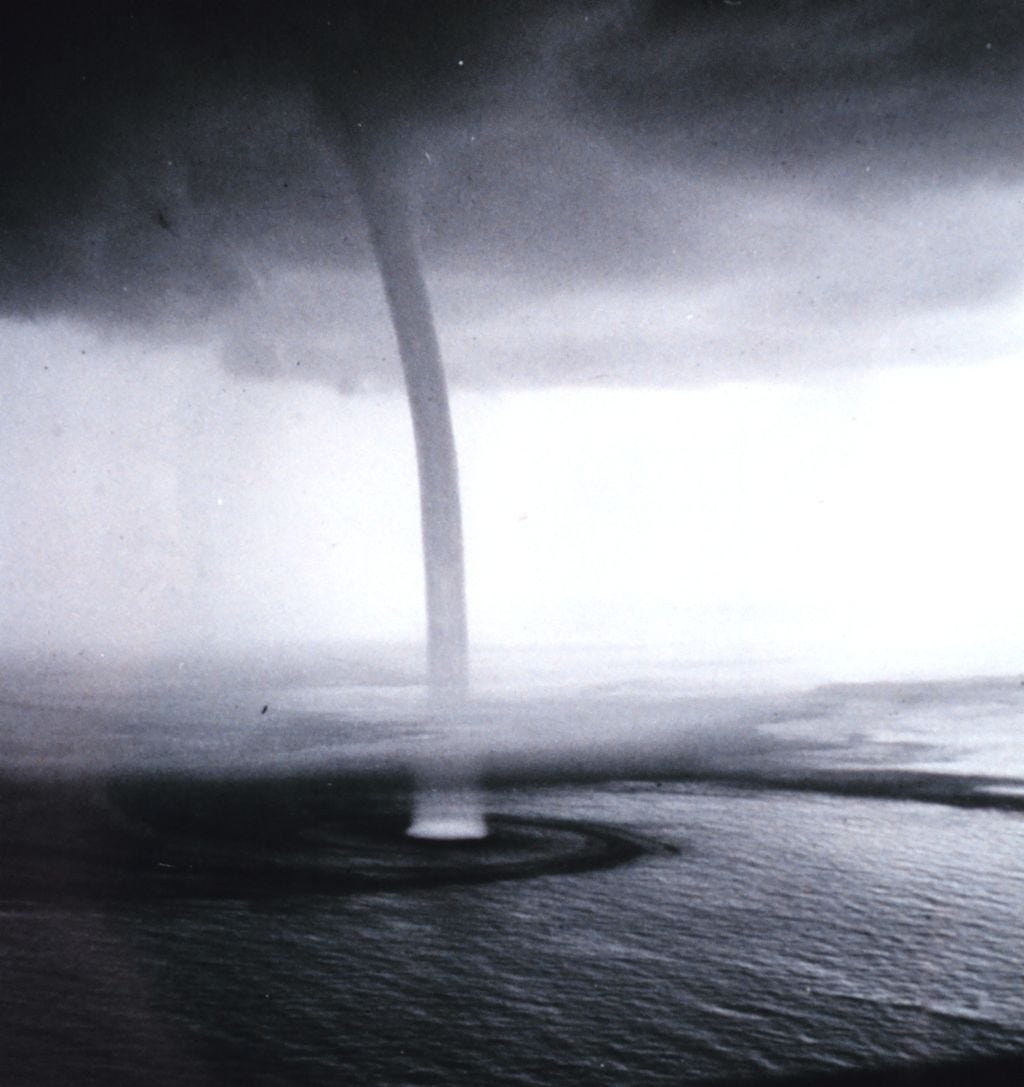Against Zero-Dimensional Culture
Today's algorithm-driven Internet is destroying the multidimensionality of human culture

American culture feels profoundly flattened today. Of course, this feeling is subjective; it’s impossible to assess to what extent it’s objectively true. But at least to me, it seems accurate to a degree that’s absolutely unprecedented.
Until recently, I’d always believed that no matter how messed up our society might be, it was still connected to some collective source of creative cultural energy, dynamism, and spark. Even when it seemed like we were experiencing a dry spell, with nothing particularly interesting in sight, I had a bedrock confidence that there was always a deeper wellspring of American generativity there nonetheless. It was just a matter of time, I felt certain, until something new would once again bubble up to the surface, become widely visible, and impact the broader culture in unexpectedly intriguing ways.
Today, I no longer have that easy faith. Maybe the fount of American cultural vitality I used to take for granted is still there. But then again — maybe it’s not. Certainly, I hope that it is. It’s entirely possible that we’re simply experiencing another dry spell. Truth be told, though, I’ve come to doubt it more often than not.
Worse, I’m worried that this troubling feeling of an unprecedentedly flattened culture isn’t simply an American problem. Perhaps the underlying issue is far bigger than the plight of any one particular county or even region (i.e., the West). Perhaps the core problem is that the more humanity’s primary site of cultural generativity shifts into cyberspace, the more every culture across the globe is going to feel flattened beyond recognition.
Because this new world of cyberspace is not the same world that we humans have ever lived in before. In the past, it was axiomatic that human beings developed human culture. Increasingly, however, our culture is driven by computers, algorithms, AI. How that’s impacting us and how best to navigate this new technologically-generated reality are two of the most consequential questions of our time.
Zero-Dimensional Culture
At first, when I was thinking about American culture feeling flattened, the phrase that kept coming to mind was “two-dimensional.” On further reflection, though, I realized that wasn’t quite right. Because if my intuition is correct that the primary factor producing this flattening is the colonization of culture by cyberspace, then it’s really the dimensionality of that strange new online world that’s at issue.
And cyberspace is, quite literally, a zero-dimensional world. There’s no concrete materiality, let alone embodied physicality to it.
There are no primordial elements in cyberspace: No fire, water, earth, or air. There is no nature: No sun, moon, stars, earth, trees, flowers, oceans, rivers, or rocks. There are no bodies: No birds, insects, cats, snakes, fish, dolphins, bears — or humans.
There are visual, aural, and textual representations of all of the above — and, of course, endlessly more. But there is no materiality, no embodiment, no nature. Instead, there is only a melding of our minds with some vast machine that we do not and cannot understand.
And a space with no materiality and no life isn’t two-dimensional: It’s zero-dimensional.
Yet, weirdly and incomprehensibly, the firehose of “content” that cyberspace generates makes it feel multidimensionally absorbing. And quite aggressively so: It’s a system that has been expertly designed to be addictive. And it is. All too easily, we fall into the zero-dimensional zone of cyberspace like Alice in Wonderland dropping down, down, down some never-ending rabbit hole.
When we’re “online,” our bodies tend to go “offline.” As we plug into the new world of cyberspace, we unplug from the only world that human beings have previously ever known. Cybersurfing seamlessly among an endless stream of videos, soundbytes, pronouncements, text messages, and hashtags is a strangely trancelike experience. Without realizing it, we morph into a disembodied state, radically disconnected from the living world that surrounds and includes us.
What happens to human intuition, imagination, reflection, thought, feeling, and creativity when more and more of us spend more and more of our time in this zero-dimensional zone? No one can possibly know. We’ve never been in this situation before. But many of us share a sense that our culture has suddenly shifted in ways that feel menacingly strange.

What Exactly is “Culture,” Anyway?
Most of us utilize the term “culture” without ever pausing to reflect on what, precisely, we mean by it. This is almost unavoidable unless you’re a cultural anthropologist or the equivalent: As The Stanford Encyclopedia of Philosophy notes, “defining the term ‘culture’ is very challenging.” Similarly, Raeff et al (2020) explain:
Conceptualizing culture is no easy task. As with so many (if not all) complex human phenomena, culture can be and has been defined and understood in many ways. In 1952, Kroeber and Kluckhon analyzed the concept of culture, pointing out that it goes back to biblical times, to Homer, Hippocrates, and Herodotus, as well as to Chinese scholars from the Han dynasty. They famously identified over 100 definitions of culture that were in use during the early 20th century across varied academic fields, including history, philosophy, anthropology, sociology, and psychology.
Nonetheless, there is “considerable agreement that whatever it is, it matters to people.”
Personally, I tend to think of “culture” in three interrelated ways:
First, “culture” refers to the everyday, mostly taken-for-granted set of shared meanings and practices that help structure any given society. An oft-used analogy here is that if we were a school of fish, our culture would be the body of water we swim in. On the one hand, it’s vital to all of us, both individually and collectively. On the other, it’s invisible to most of us most of the time. Unless the water we’re in changes in such a dramatic fashion that we can’t help but notice it — churning violently, flashing colors, draining down, or whatever — we simply live in it every day without thinking much, if at all, about how vitally important it is that it’s there.
Second, there are the many smaller and much more deliberately bounded cultures (often called “subcultures”) that exist within this bigger culture space. These smaller cultures tend to be significantly more self-aware. As such, they ask people to participate much more consciously in the shared sets of meanings and practices that define them. (That said, there will also always be subliminal cultural dynamics in play as well.) Examples might include religious denominations (e.g., Southern Baptists), identity groups (the “queer community”), and civic associations (a local PTA).
Finally, the term “culture” also refers to a wide range of creative endeavors — art, music, film, literature, poetry, and so on. Here, it used to be common to distinguish between “high” and “low culture”: Classical vs. pop music, fine art vs. comic books, great literature vs. romance novels, etc. The massive cultural shifts of the 1960s-70s, however, mostly leveled this once-standard distinction. Consequently, the boundaries of this dimension of “culture” have become quite blurry, particularly in today’s smartphone-saturated society, which gives us constant access to “everything everywhere all at once.”
Comparing how these three categories of “culture” have related to one another before and after the advent of our newly cybercentric society helps shed light on why everything feels so strangely flattened, confusingly jumbled, and unpredictably dangerous today.

E Pluribus Unum
Before the advent of the Internet, “fish in water” culture was the widely taken-for-granted context in which smaller subcultures and the creative arts developed. Like a set of nesting dolls, the common culture contained both smaller subcultures and the more specialized realm of the arts. As such, the cultural fabric of the United States meshed reasonably well with its founding motto: E Pluribus Unum, or “out of many, one.”
Smaller subcultures and the arts did, at times, impact and even change the dominant culture dramatically. But the course of these developments was pretty legible: Generally speaking, you could trace them back to specific individuals, organizations, or movements that took consequential actions at particular places and times. This meant that even when the resultant social change produced conflict (as it most often did) there was still a shared historical narrative. Different groups supported or opposed different societal developments. But these battles nonetheless felt like they were being fought within the larger territory of a shared cultural reality.
Consequently, even if they were divided on many issues, most Americans still took it for granted that they shared a common national culture. Of course, there were always important regional, religious, ethnic/racial, political, and other differences. But regardless if someone strongly identified as a farmer, New Yorker, Jehovah’s Witness, UAW member, or whatever, they were also, quite simply, an American.
Similarly, there was a shared sense of a distinctively American cultural canon. This included great artists (e.g., Whistler, Cassatt, Hopper, O’Keefe, Bearden, Rothko, Warhol); writers (Poe, Hawthorne, Melville, Twain, Ellison, Bellow, Morrison); filmmakers (Scorsese, Coppola, Spielberg, Ford, Altman, Lynch, Lee), and many more (musicians, architects, journalists, poets, photographers, etc.) Again, such luminaries were typically located within more specific identities, genres, and movements (e.g., the Black blues or Appalachian folk traditions). Yet here again, they were also, in the bigger picture, simply American artists.
This sense of having both 1) a common overarching culture; 2) a wide variety of regional, racial, ethnic, religious, political, and civic subcultures; and 3) a correspondingly varied range of art, music, film, and other creative production made American culture multidimensionally dynamic, generative, and alive. It’s not that everything was always happy, healthy, and harmonious. On the contrary, there has always been plenty of discontent, discord, and decadence. The 1970s, for example, were totally messed up in so many ways. Yet this was also a decade with phenomenal cultural vibrance.
America used to be rightfully renowned around the world for its exceptional cultural dynamism. It wasn’t always pretty. It included the good, the bad, and the ugly — as well as the brilliant, beautiful, and wonderfully, quirkily weird. As such, it was reliably robust and energetic, diverse and unpredictable, creative and free.
That used to be the cultural spirit of America. Yet today, it feels dismayingly flattened and suffocatingly claustrophobic. A lot happened to let that much air out of the tires. But the recent development of the algorithmically-driven Internet was arguably the most important factor of all.
The Viral Toxic Vortex
Looking back, I can now see that this cultural flattening was gathering steam during the early-to-mid-2010s. At the time, though, I had no sense of what exactly was happening or just how massive the coming shift would be. Since I was online regularly as a blogger, I could see that the world of social media was changing fast — and not in a good way. I mostly assumed these developments were temporary aberrations from a familiar norm, however, not harbingers of a radically different order.
What was obvious to me at the time was that trolls and ideologues (who were most often the same people) were rapidly figuring out how to corral, manipulate, intimidate, harass, and silence others in order to dominate and control bigger and bigger swathes of cyberspace. What didn’t become clear until several years later, however, was that their efforts were very much being aided by new algorithms that amplified negative emotions in order to drive online engagement, extract as much data from everyone as possible, and then sell it to advertisers and others for an enormous profit.
The new age of what Shoshana Zuboff so memorably termed “surveillance capitalism” had begun. But it wasn’t only the corporations, tech giants, and security state who were surveilling our online activities (although they increasingly were). Even worse, an unknown yet culturally consequential number of ordinary people decided that it was somehow their business to surveil everyone else they could possibly manage as well. The upshot was that what had felt like an exciting new “public square” — the free, open, creative, experimental, and (small-d) democratic Internet — morphed into a conformist, claustrophobic, and rigidly politicized space dominated by sloganeering hashtags and mean-spirited pile-ons leveraged by one-note zealots and nihilistic trolls.
This would have been bad enough had these dynamics stayed hermetically sealed in cyberspace. But, of course, that’s not what happened. Instead, they went “viral” — an all too apt word for the toxic dynamics that spread as a literal social contagion throughout the body politic during 2016-2021. It was shocking, horrifying, and at times even terrifying to witness just how fast these toxic online dynamics not only spread socially, but came to dominate America’s partisan politics, legacy media, professional organizations, colleges and universities, cultural institutions, major nonprofits, and more. Such core American institutions, weakened by decades of amoral neoliberalism, collapsed in the face of this cyberspace-generated tsunami like a hollowed-out house of cards.
But was the Internet the only reason these changes occurred? No, of course not: Many other factors were also in play. But would this shocking sea-change have played out as it did if it had never been invented, or perhaps evolved in a very different way? It’s a counterfactual that can’t be answered conclusively. But there’s good reason to believe that the answer is “no.”
Because the interpenetration of cyberspace into society is truly a world-historical event. Just as previous pivotal transformations in communications technology radically changed society — the inventions of the printing press, telegraph, radio, TV, etc. — so has this one, as well. Metaphorically, it’s as if the zero-dimensional vortex of cyberspace descended into our previously taken-for-granted “fish in water” culture and started churning that ocean so violently that we no longer feel like we’re swimming in the same waters at all.

In the Before Times, there was a common sense that a bigger cultural sea contained particular subcultures and the arts. With the descent of the cyberspace vortex, however, the subcultures that first managed to take over social media now dominated the entire society. With shocking speed, everyday life was violently scrambled and reorganized around a series of online hashtags, such as #LockHerUp, #MAGA, and #QAnon on the right, and #MeToo, #BLM, and #TransWomenAreWomen on the left.
In the process, the tactics of surveilling, trolling, and harassing that had been developed online expanded into the even more destructive dynamics of “real world” doxxing, mobbing, and cancellation. At the same time, the various “compliance” bureaucracies (HR, DEI, Title IX), which were and are strongly aligned with the newly ascendant politics of post-liberal progressivism (a.k.a. wokeism), rapidly expanded their presence and power in schools and workplaces across the country.
These developments have been terrible for the arts. As most of America’s major cultural institutions that had long supported our writers, artists, musicians, actors, and filmmakers reconfigured themselves to adhere to the same simplistic, hashtag-driven party line, almost everything that didn’t fit a boringly predictable woke formula either tanked or was pushed out to the margins.
As the unapologetically working-class Cuban-American writer Alex Perez ranted in a hilariously incisive interview with Hobart magazine in 2022 (which, predictably, caused most of its editors to resign publicly over his “deeply hurtful racism and misogyny”):
My take is the only take and the one everyone knows to be true but only admits in private: the literary world only accepts work that aligns with the progressive/woke point of view of rich coastal liberals. This is a mindset that views “whiteness” and America as inherently problematic, if not evil, and this sensibility animates every decision made by publishers/editors/agents. White people bad. Brown people good. America bad. Men bad. White women, I think, bad…unless they don a pussy hat. This explains why nearly every book is about some rich fuck from Brooklyn confronting his white guilt or some poor black girl who’s been fighting “whiteness” and “patriarchy” all her life . . . everything reads and sounds the same, from major publishing houses to vanity zines with a readership of fifteen . . . This mindset is toxic because it fractures the human experience in such a way that kinship between different people becomes impossible.
Rather humorously, Perez is a bit out of date on the particulars here: Pussy hats had already become a woke no-go back in 2017 after being criticized as “racist” and “transphobic.” Clearly, he wasn’t paying sufficiently close attention to the Current Thing! (lol). Still, his basic points are right on, nonetheless.
In particular, his observation that the dumbed down “progressive/woke point of view” pushed by “rich coastal liberals” is “toxic” because it “fractures the human experience in such a way that kinship between different people becomes impossible” is crucial. There’s zero doubt in my mind that he’s right on this score. And the fact that this ideology took over our leading cultural institutions has damaged not only the arts, but our everyday “fish in water” culture as well.
The culturally flattened and toxically divisive dynamics that first developed in cyberspace now dominate American society across the board. This isn’t a Red versus Blue, conservative versus progressive, left versus right issue. It’s not even simply an American issue. Rooted in a world-historical shift in communications technology, the core problem is that the zero-dimensional vortex of cyberspace has hit society in a way that’s destroying the multidimensionality of human culture.
What can we do about this? On an individual level, there’s actually quite a lot: We can discipline ourselves to be relentlessly discerning in our online engagement. Refuse to engage in toxically divisive, hashtag-driven politics. Seek out good independent news sources. Buy food from regenerative farmers. Build local community. Support creative excellence in the arts. Invest in positive relationships. Read books. Think independently. Practice embodiment. Connect with nature.
Of course, this seems like small potatoes in the face of the voraciously expanding AI-driven Internet that everyday reality is now entangled with. And it’s certainly true that we desperately need constructive action on the level of public law and policy. But given the dismal set of choices we’re currently presented with politically, it’s unwise to invest too much of our hope for a more creatively dynamic and less divisively destructive culture there.
Besides, a healthy culture is, at heart, necessarily organic. It can’t be imposed from the top down. It has to be alive at the grassroots and grow collectively from there. It certainly helps to have strong institutions dedicated to nurturing that growth. But those, too, must be rooted in a larger culture to be meaningful and effective. And that culture consists of nothing more and nothing less than the dynamic, creative, and unpredictable interplay of countless individual actions and human relationships over a long, long period of time.






I would throw "dead internet theory" into this mix and the fact that a lot of trolls are paid.
It is ironic how the ascendance of DEI has resulted in much less diverse cultural offerings. I feel like the books being published are less interesting (competition from the internet probably factors in there as well), and post-COVID there are fewer venues for author talks, and authors were already not being sent out on book tours as often as in the past. Pre-COVID, I sat in a packed club for an Erik Davis presentation, and in a small group for a book discussion given by Oliver Stone, and in a stuffed bookstore for a talk by Bret Easton Ellis. I really miss that. I love podcasts and listen to a lot of them, but I miss sitting in an audience of people who are all interested in the same topic and are given the opportunity to discuss that topic with the author. I would expand this sense of loss to other kinds of lectures and presentations.
Cyberspace is not the culprit, if there is a flattening of culture. Humans are the agents and the internet is the medium. So humans are making culture what it is. I think there are a relative few internet users that regularly do the behaviors of invalidating or degrading thinkers and creators. This can reflect a politicizing of expression, it can stem from racism or sexism, or it may be an impulse of wokeism or Jacobinism. It can also be simple nihilism, occurring online because some people are attracted to or enabled by the ease and anonymity of it all. The general answer to this would be a decided and worldwide revalidation of the human, with dignity, rights, and responsibilities, in the sphere of cyberspace, as well as others. That constitutes an adaptation that hasn’t yet happened consistently at a large scale, although it’s often found.
I think you’re saying that some people disengage from the real world, or a more traditional (“before-times,” as you say) multi-dimensional ontological system, through their technology use. “All too easily, we fall into the zero-dimensional zone of cyberspace like Alice in Wonderland dropping down, down, down some never-ending rabbit hole.” However, if a person knows about that rabbit hole, and isn’t addicted to it, then at least she has the option of not falling into it. The rabbit hole has its ontological status (representational, as you say, or perhaps fabricated to some degree), and if the technology user can only be aware of what that is, then he has that important step toward not invalidating or becoming insensible to materiality, embodiment, or the human in her humanity. So there’s a way of engaging with and managing technology that doesn’t take the body offline, that can maintain or even greatly enhance the person’s consciousness of previously-apprehended reality. (In the case of children as technology users, of course, a vulnerability exists because they don’t have a comprehensive base of previously-apprehended reality.)
I think your disillusionment about culture is because you’re waiting for something to “bubble up to the surface.” The reward is in actively maintaining a cultural consciousness – to live that all the time. The generativity is more evident in that way. Culture is in the sidewalk chalk art that kids do, and in Black hair creations. It’s in many human activities. It’s very feasible to “pick up on culture.”
Those who actively seek out culture find that it’s not at all flattened. For example, there are amazing Lego cities on display at the periodic Brickworld expositions. For example, last year’s BIPOC exhibition at the Evanston Art Center had many trenchant, vibrant works that really had something to say.
https://brickworld.com/brickworld-chicago/
https://www.evanstonartcenter.org/exhibitions/evanston-made
The Calatrava-designed building of the Milwaukee Art Museum, less than 25 years old, has a chancel which resembles the prow of a ship, referring, of course, to the inland sea of Lake Michigan. It also has east-facing galleries with picture windows, in which people’s artworks share the broad scene with that primordial natural creation. The internet doesn’t have the power to determine the qualities of the whole experiential package, but it can inform (or misinform) people about that. Cyberspace can, of course, corral and consume people’s time and attention. Due to that, people might not make a trip to visit the museum, or might be engrossed in their phones while there. That, I think, is a greater immediate concern than the possible flattening or zero-dimensionality of culture.
https://mam.org/info/architecture/quadracci-pavilion/#:~:text=The%20hall's%20chancel%20is%20shaped,of%20the%20lake%20and%20downtown.
So your question is a highly relevant one: “What happens to human intuition, imagination, reflection, thought, feeling, and creativity when more and more of us spend more and more of our time in this zero-dimensional zone?” I think a very general answer, at this early stage of the phenomenon, is that some people will be set back in their cultural lives or in certain aptitudes, and some will adapt well through intrapersonal intelligence or ontological skills. Some will experience setbacks, then adapt with an awareness of the hazards of zero-dimensionality.